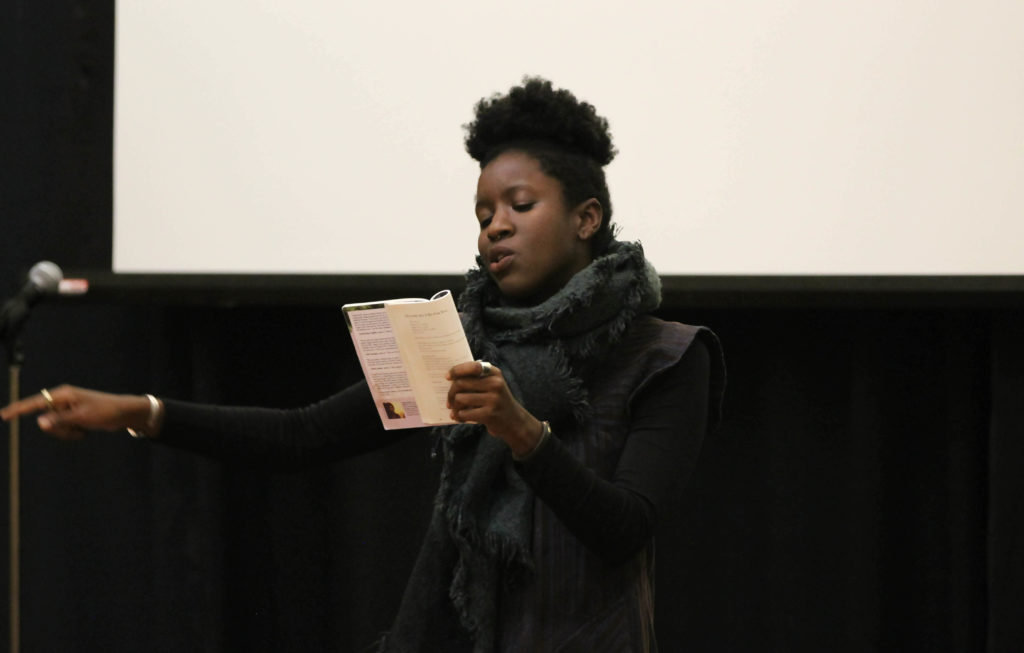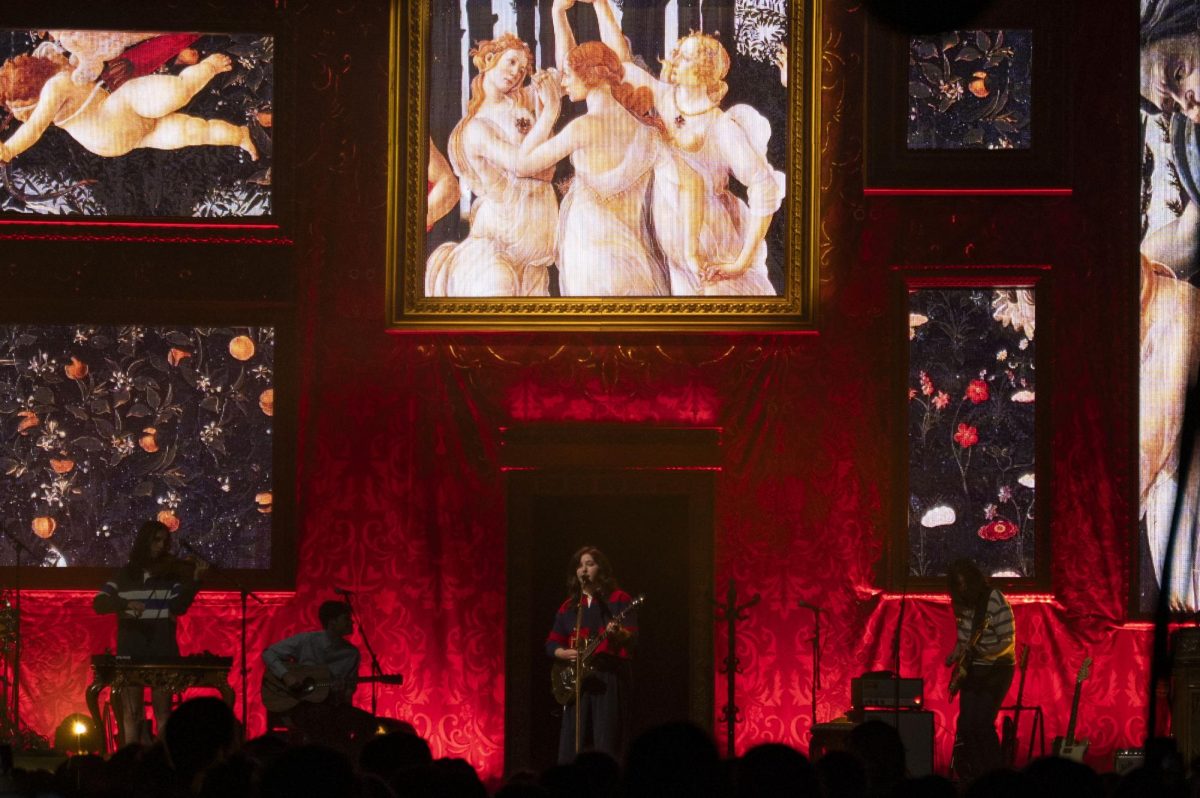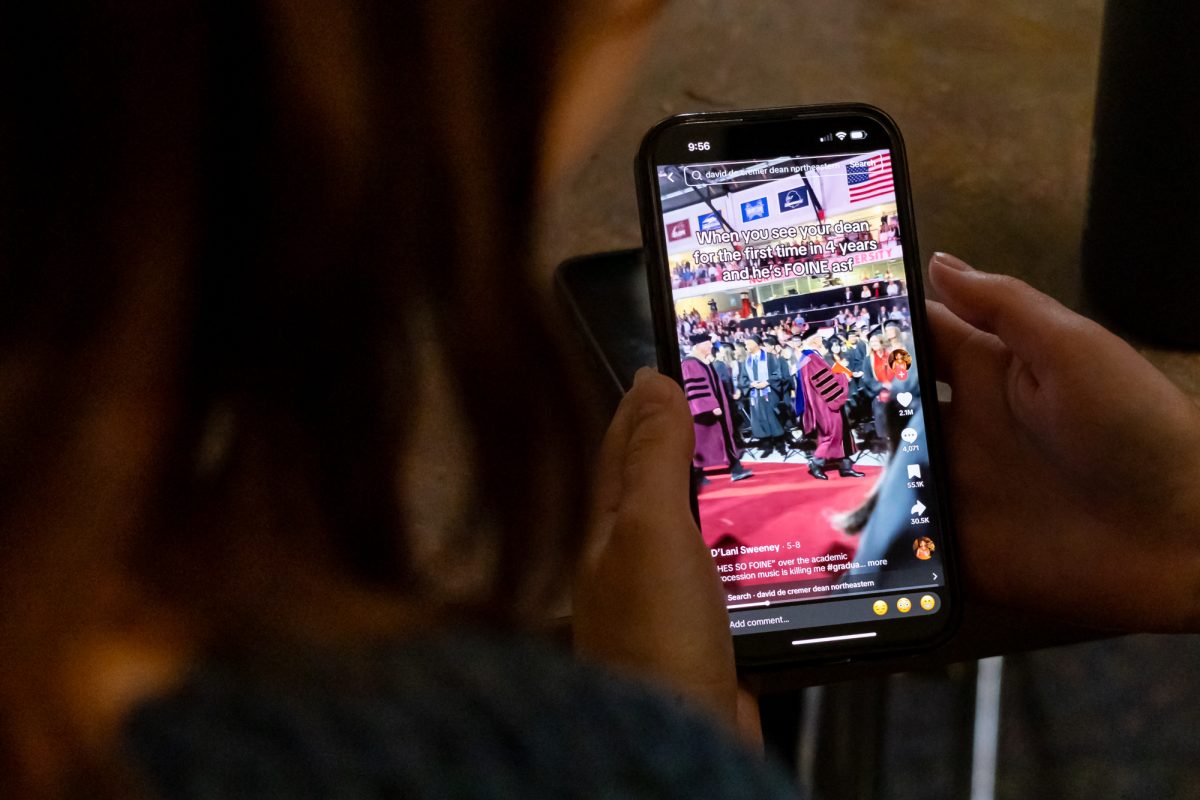By Tierney Banco, news correspondent
An energetic crowd gathered in the Amilcar Cabral Memorial Center in the John D. O’Bryant African-American Institute for a night of words, power and passion courtesy of the BreakBeat Poets on Friday, Sept. 30.
The BreakBeat Poets are a group who published the “first poetry anthology by and for the hip-hop generation,” according to Kevin Coval, one of two group members who performed on Friday. The anthology, titled “New American Poetry in the Age of Hip-Hop,” was published in 2015 and features several poems covering topics ranging from the trials of customer service to the streets of Chicago. Coval and fellow member Angel Nafis each read several poems and spoke passionately about their own experiences.
The quick-paced, rap-like style was musical in nature, as Coval wove humor and tragedy in his opening poems. As one of the leaders of the group, and editor of the anthology, Coval described the origins of the seven-year project leading up to the publication and the motivation behind it.
“We all have essential stories to tell, no matter who you are,” Coval, a Chicago native, stressed early in his performance. “We are the poets influenced by the breaks. We are blowing up b******t distinctions from high and low art. Hip-hop culture is saving American poetry from extinction.”
Coval’s final poem of the night emphasized his obvious pride towards the city shone through as he described his hometown as “Beautiful, Brutal, Ugly.”
Nafis’ performance began musically, with a short performance of Nina Simone’s “Feeling Good” that engaged the audience to a stillness that was unmatched throughout the night. Once Nafis began reading her poems, she got numerous laughs from the crowd.
“I think it’s so inspiring to be in a room with people so confident in themselves and their poetry,” Michaela Anang, a senior human services and international affairs major, said.
The women in the crowd roared during Nafis’ “Harassment City” poem, which contains various phrases men have said to Nafis over the years, complete with vocal impressions. She was quite candid when she finished the poem, describing how multiple people have told her how wonderful they find the fact that she can turn a negative into a positive.
“I like that they were themselves. It was authentic,” Daija Spaulding, a third-year English major, said. “As a girl from Harlem, hearing about [Nafis’] experiences, it really hit home. They really were themselves.”
The audience had several questions for the poets during the Q & A session that took place after the performance. Both artists described the happiness of the finding their voice in the poetry and the thrill of live readings.
“It’s like a song you love, then you hear it live, and then you want to listen to it at home,” Nafis said, in reference to the art of performing. “The page can hold all of that. I don’t think you can live without having the text because you miss things.”
Ellen Noonan, an associate professor in the English department and one of the key organizers of the event, spoke about why works like these resonate with students.
“It’s personal and political poetry, and, as it is performed especially, it engages the mind and the ear,” Noonan said. “I loved how Angel Nafis embodied her work in the performance, and I loved how she sang part of Kevin’s poem, too. How he then said, ‘It sounds better when you do it’ and how that showed their respect and fondness for one another.”
Photo by Leila Habib









